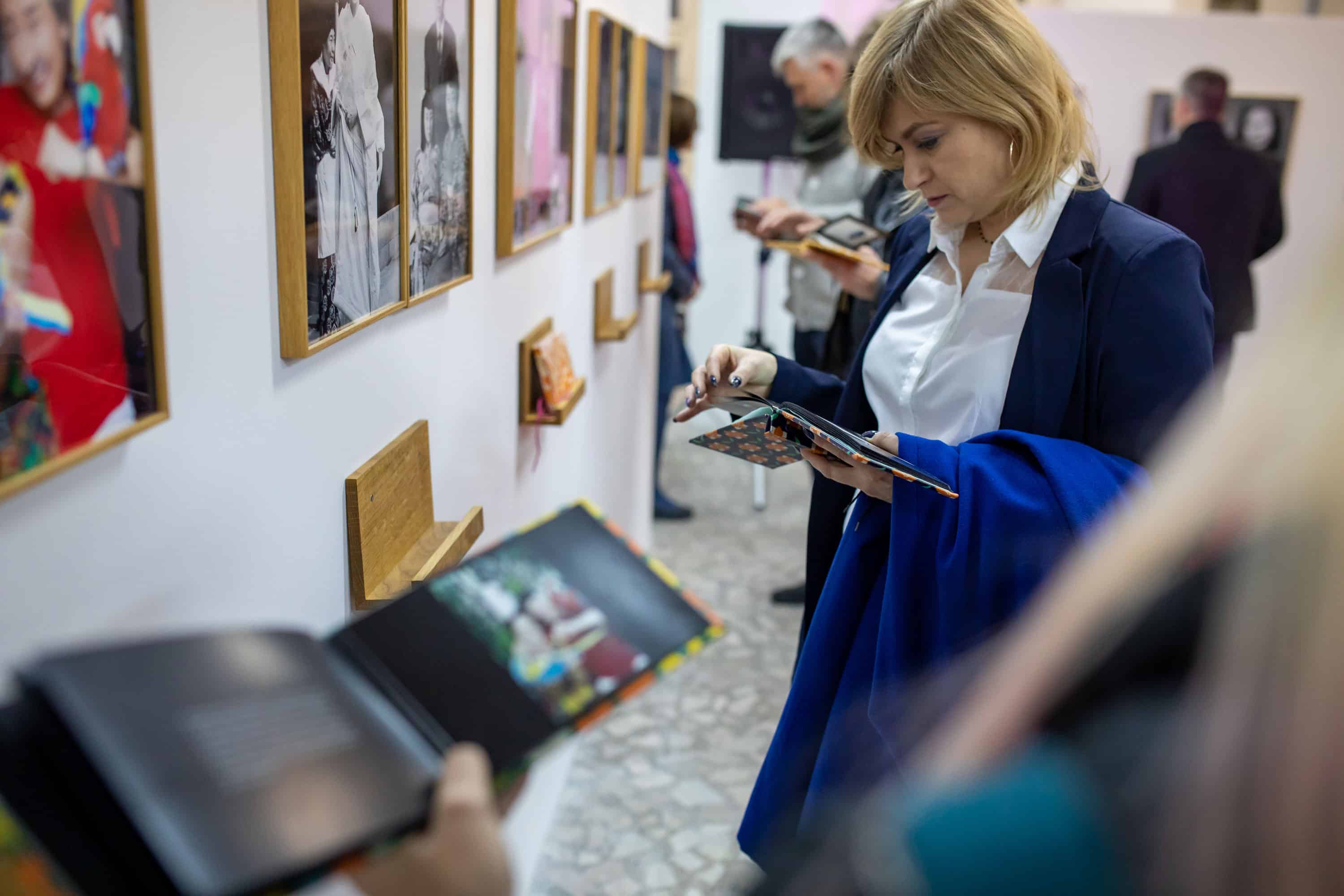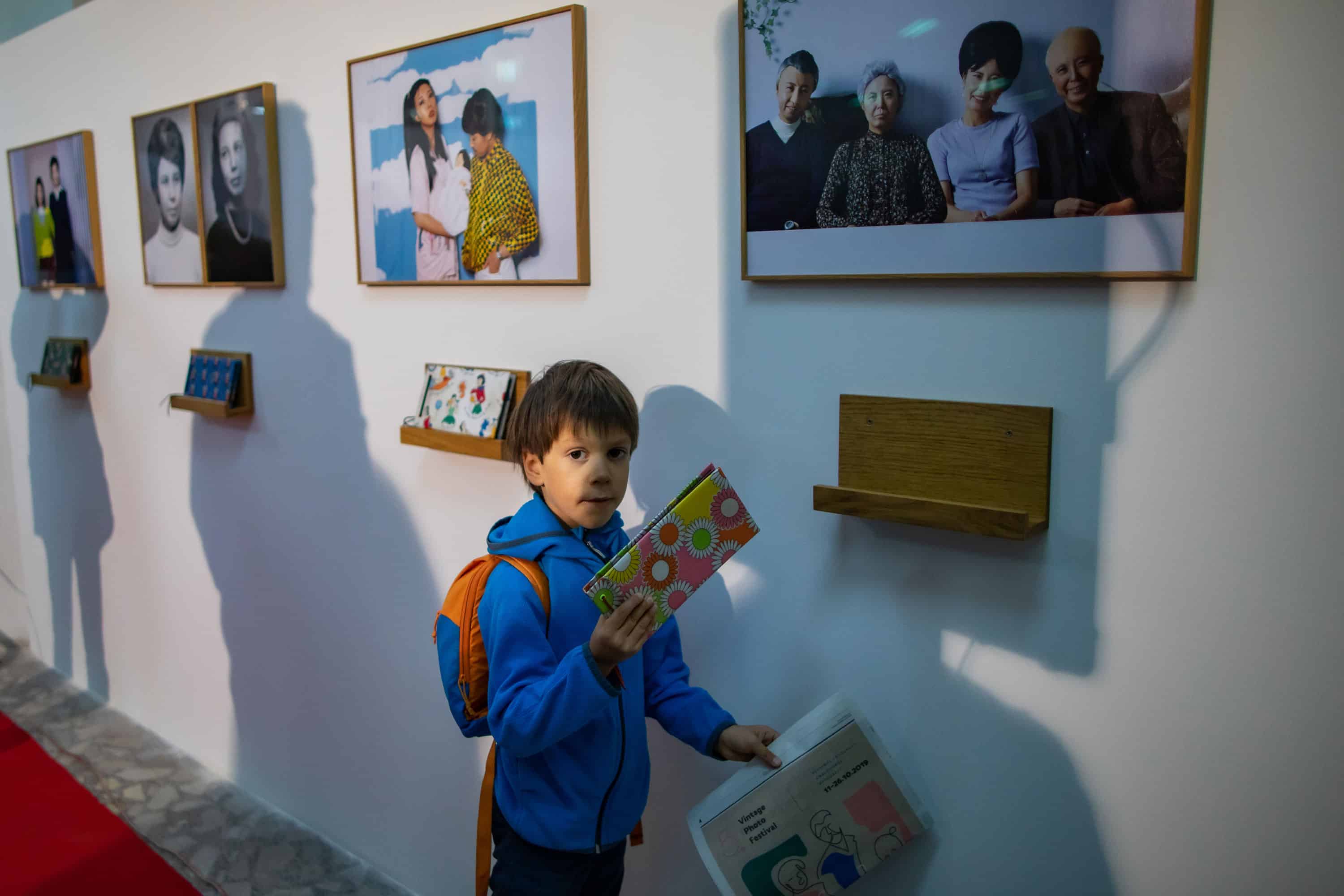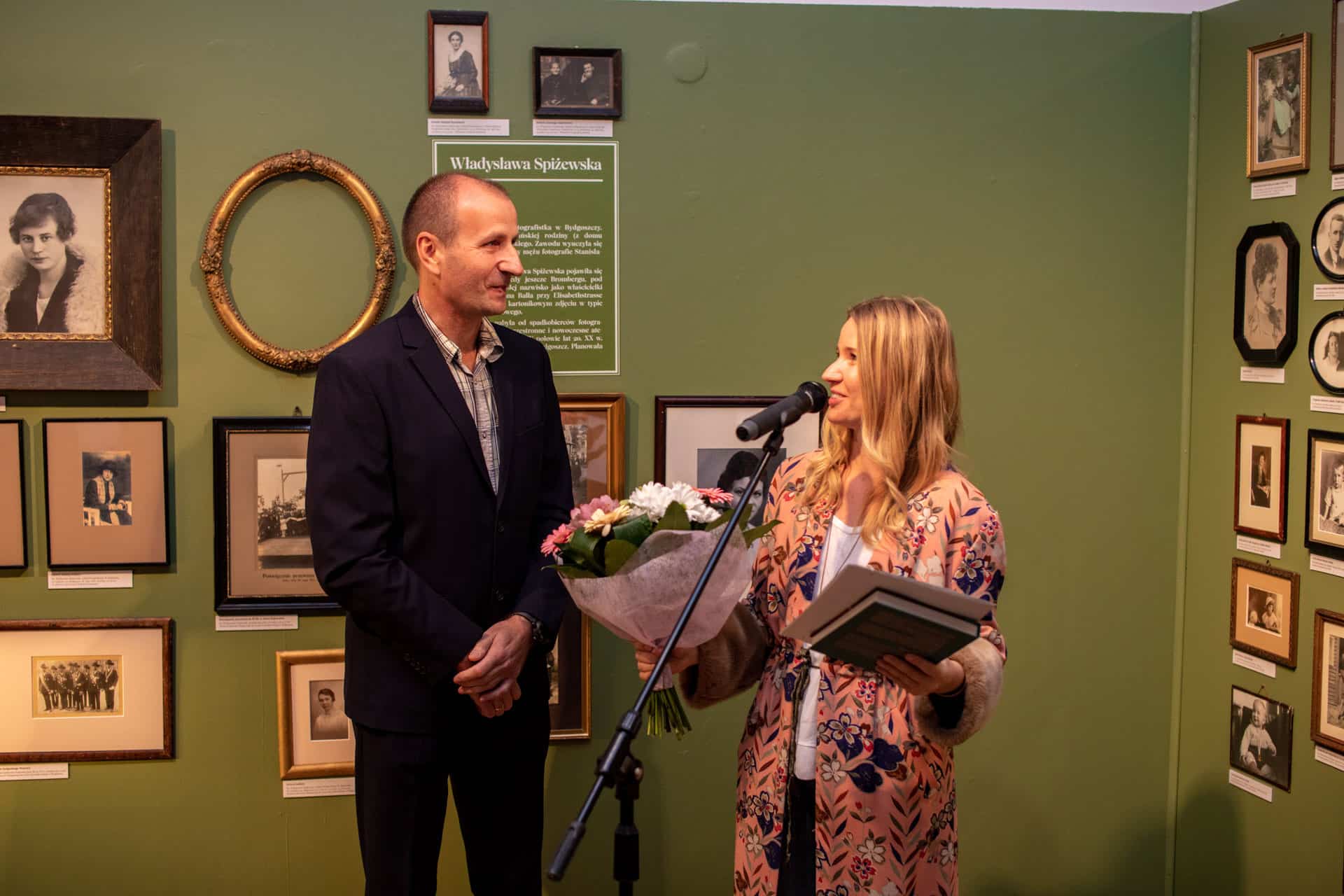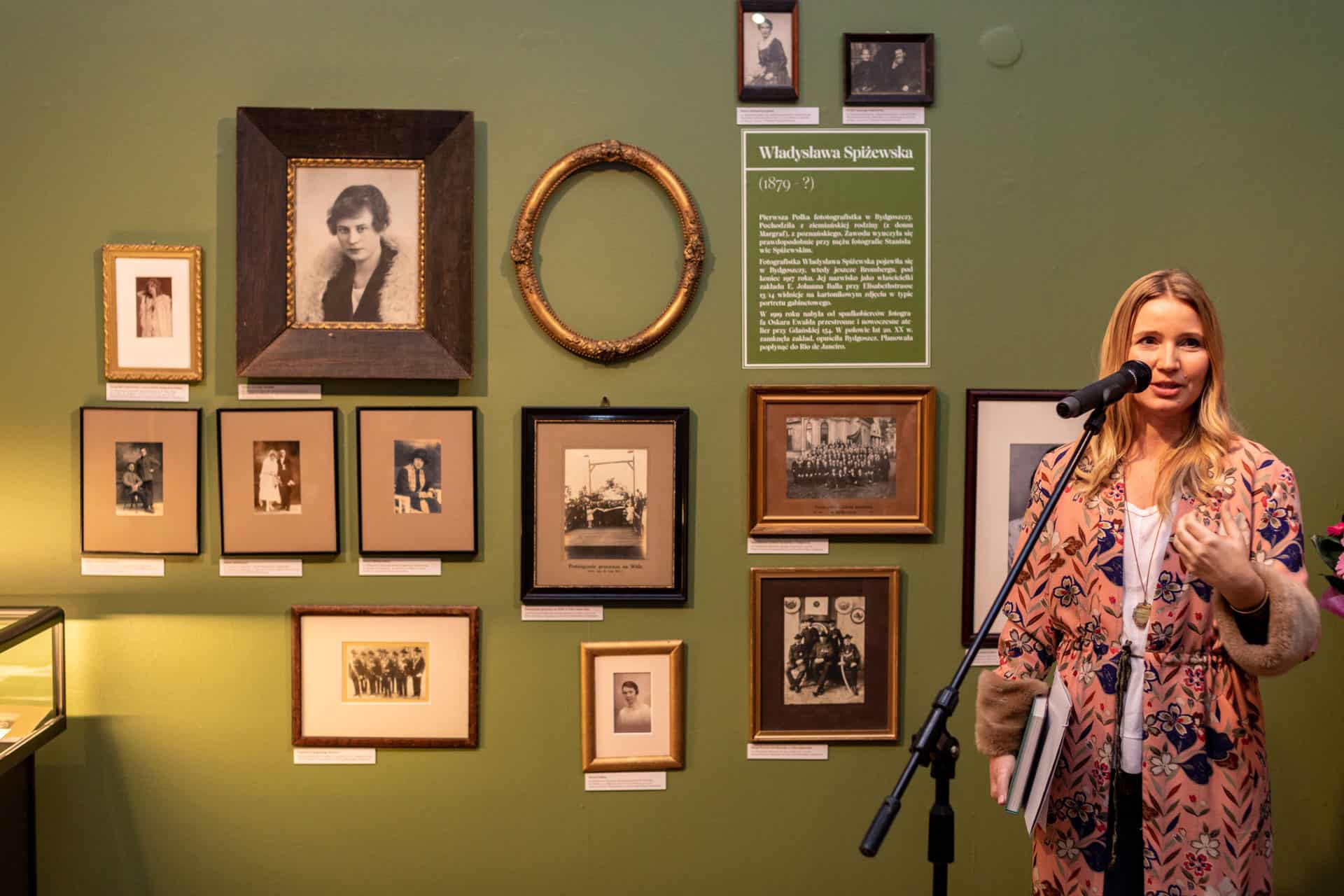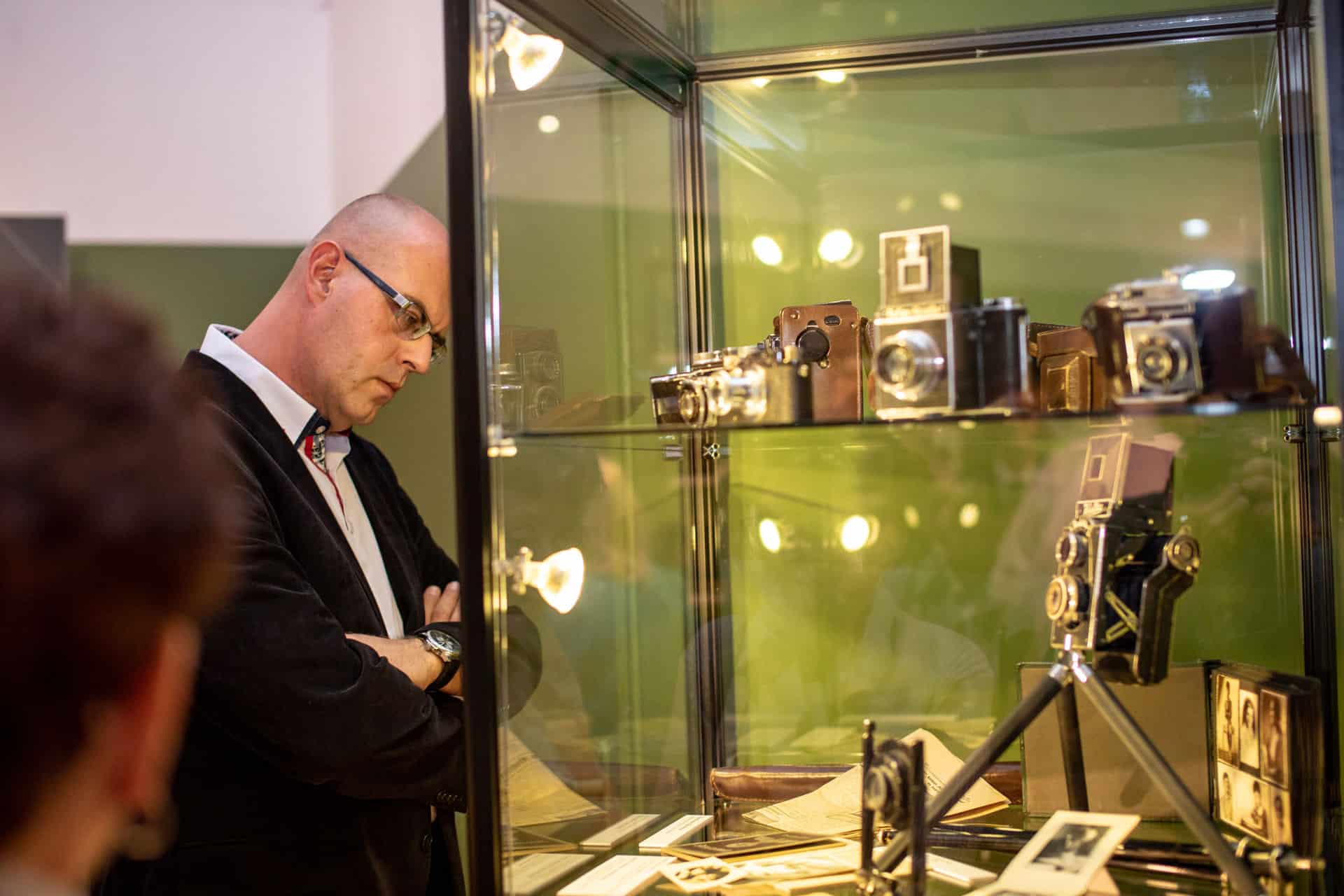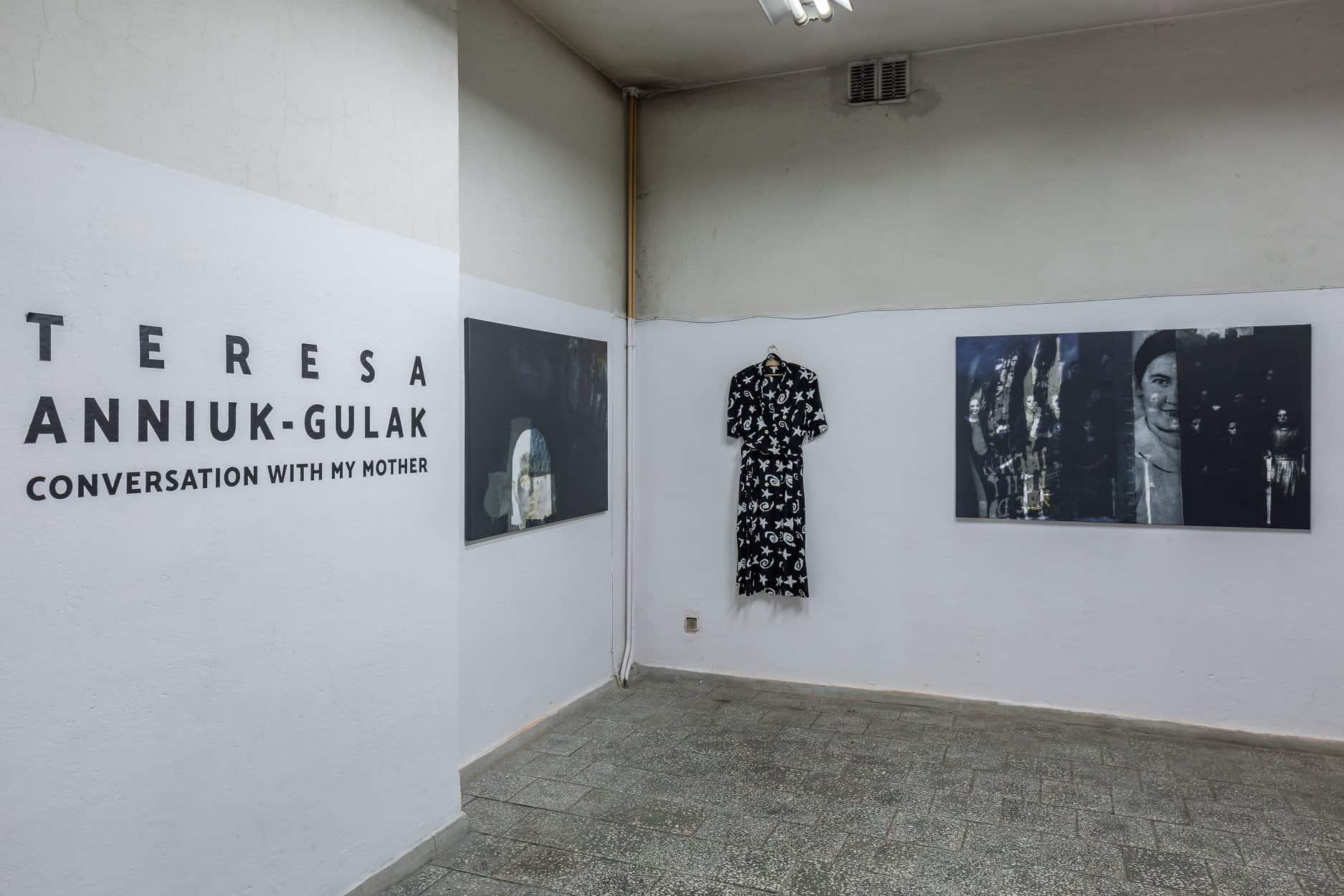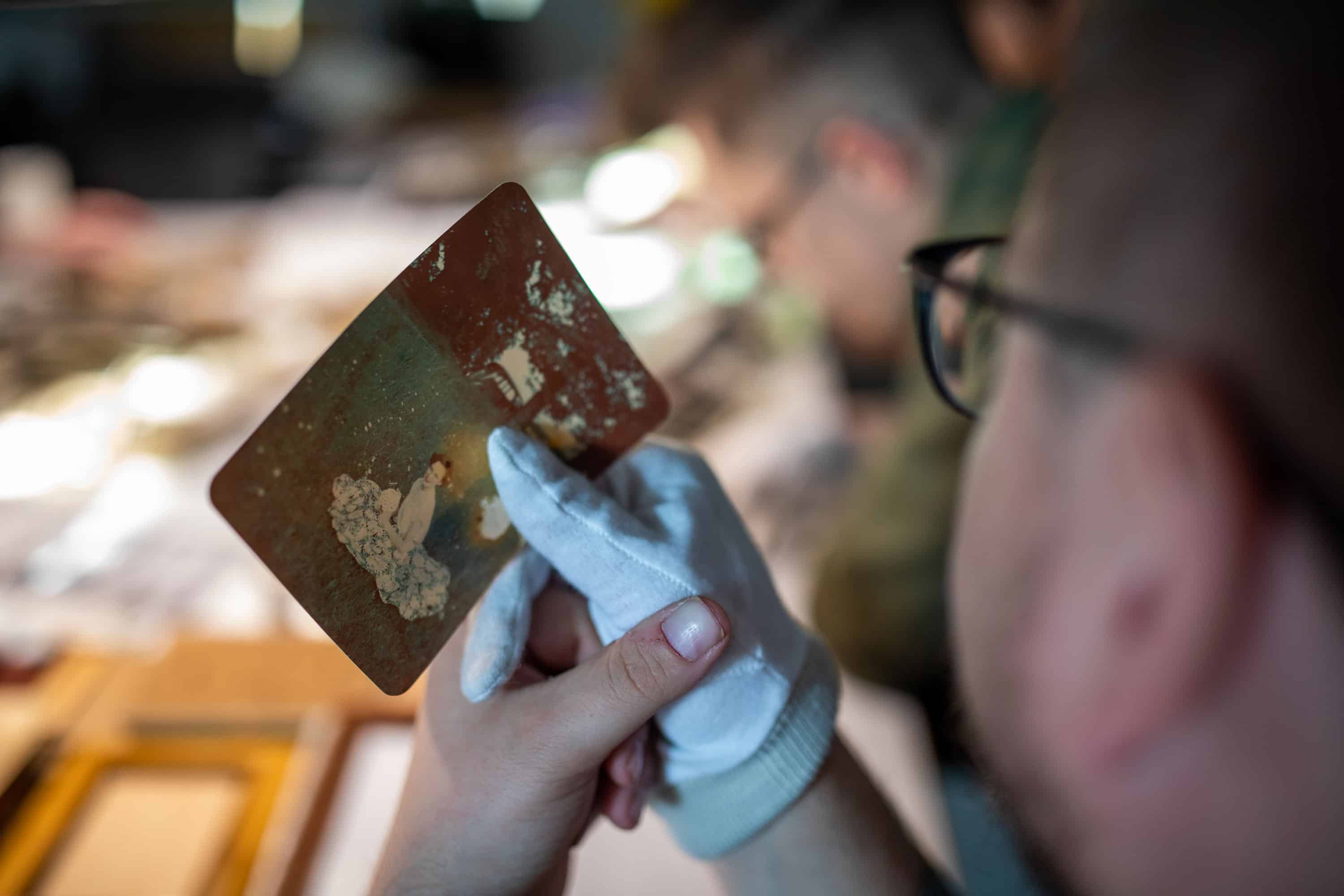Analogue photography is as a part of Poland’s cultural heritage, and this October, the fifth edition of The Vintage Photo Festival in Bydgoszcz will aim to prove it once again. This year’s main theme falls into the category of both traditional and trendy – Photo Archive. Collecting old pictures has become quite popular in the recent years in Poland, and the Festival is responding to the craze, joining in on the pursuit of the past. Vernacular photography focused on everyday life, private collections and albums – that’s what’s in the spotlight. Poland seems to be lacking the practice of regarding such as art, and the idea to do so is very recent, which makes the Festival’s central topic of interest all that more important.
Is photography that’s been taken out of family albums (both figuratively and often literally) a form of art? In the age of digitalisation, our collections migrate to the cloud and aren’t physical objects anymore. That’s precisely what makes the people who cultivate the tradition of archiving analogue photos exceptional and worth paying attention to.
During this year’s edition of the Vintage Photo Festival, visitors will get a chance to become acquainted with the work of many different artists that dedicate their attention to the topic of a “photo album” in various ways. Teresa Anniuk-Gulak will present a series of photographs dedicated to her late mother, while a Berlin-based Japanese photographer Rie Yamada will showcase her project Familie Werden, taking on the reconstruction of collected and bought family photos, in which she takes on the persona of every pictured person. Leçons de Ténèbres by Bogdan Konopka is an attempt at freezing time through the photography of abandoned places, monuments and landscapes. Tomasz Gudzowaty’s Proof is an archival collection of Polaroids that initially wasn’t meant to be anything other than an accidental by-product of his artistic process. Marcela Paniak will host a workshop dedicated to the household photo archives and the intricacies between family photography and the topics of identity, remembrance and history. Another way of touching on the subject of collecting and archiving photos will be presented during the Eros and Thanatos. Bydgoszcz’s Pioneers of Professional Photography 1888-1945 exhibition. Showcasing the works and stories of local female artists and craftswomen of the 19th and 20th century, this part of the Festival will put the emphasis on what the local history of creating still images.
Other workshops and initiatives happing all over Bydgoszcz during the Festival, will try to involve the local community and the landscape itself. Among them, a happening by Sepc, a Colombian artist who creates murals in form of negative images. The artworks can then be transformed into positives through a mobile app. During The Vintage Photo Festival, the attendees will also get a chance to watch films dedicated to the topic of analogue photography.
For now, take a closer look at five of the artists involved in the 5th Edition of The Vintage Photo Festival taking place in Bydgoszcz, Poland (Date: October 11-26, 2019; Festival’s director: Katarzyna Gębarowska)
Rie Yamada
Berlin-based photographer of Japanese origin takes on family photography and makes it her own. The artist collects albums that somehow ended up discarded at flea markets and online, which she then recreates in her own way, transforming herself into different people. Works included in the Familie Werden project are not only humorous, but also exceptionally creative. A private collection of photographs, something so deeply personal, takes on a whole new life and meaning thanks to Yamada’s input, and suddenly becomes a testimony of identity, as well as an inquiry into the idea of family and its changing meaning. The artist picked five albums from Japan and five from Berlin, showcasing the differences between cultural archetypes and how people want to present themselves in front of a camera. Uniquely approached, family albums turn out to be something more than personal tokens of remembrance.

Rie Yamada, Familien Werden
Teresa Anniuk-Gulak
A quite different way of interpreting the idea of a family photo album can be found in Teresa Anniuk-Gulak’s Conversation with Mother. The artist’s take on the photographs depicting her late mother blurs the line between life and death, and at the same time, between photography and painting. The Świebodzice native takes analogue photos and manipulates them manually, transforming them into something completely new and unique. The pictures give off an eerie feeling, but they also work as a touching tribute to the author’s parent. Terasa Anniuk-Gulak gives the audiences a glimpse into the relationship between her and her mother, and what loss and the mourning process mean for her, as well as how inspiring they can be.
Tomasz Gudzowaty
The exhibition entitled Proof consists of works that usually wouldn’t even be considered artwork – Polaroid Type 55 instant positive prints, snapped quickly on set as a means of checking the lightning and the setup, called “proofs”. At the same time, these pictures are an evidence of the artistic process, not devoid of their own individual artistic value. Tomasz Gudzowaty, one of Poland’s most prominent contemporary photographers, is recognised mostly for the sophistication of his images and their unique aesthetic. His works, usually shot in black and white, have been awarded numerous times (for example during the World Press Photo contest) and recognised world-wide. The archival collection of snapshots that “weren’t meant to be” is an unusual choice, especially when it comes to building an exhibition around them, but that’s exactly why they’re fascinating. The audiences viewing those fragile prints, almost in a state of decay, get confronted with how photography brings time to a standstill, but at the same time is – in itself – subjected to its destructive effect.
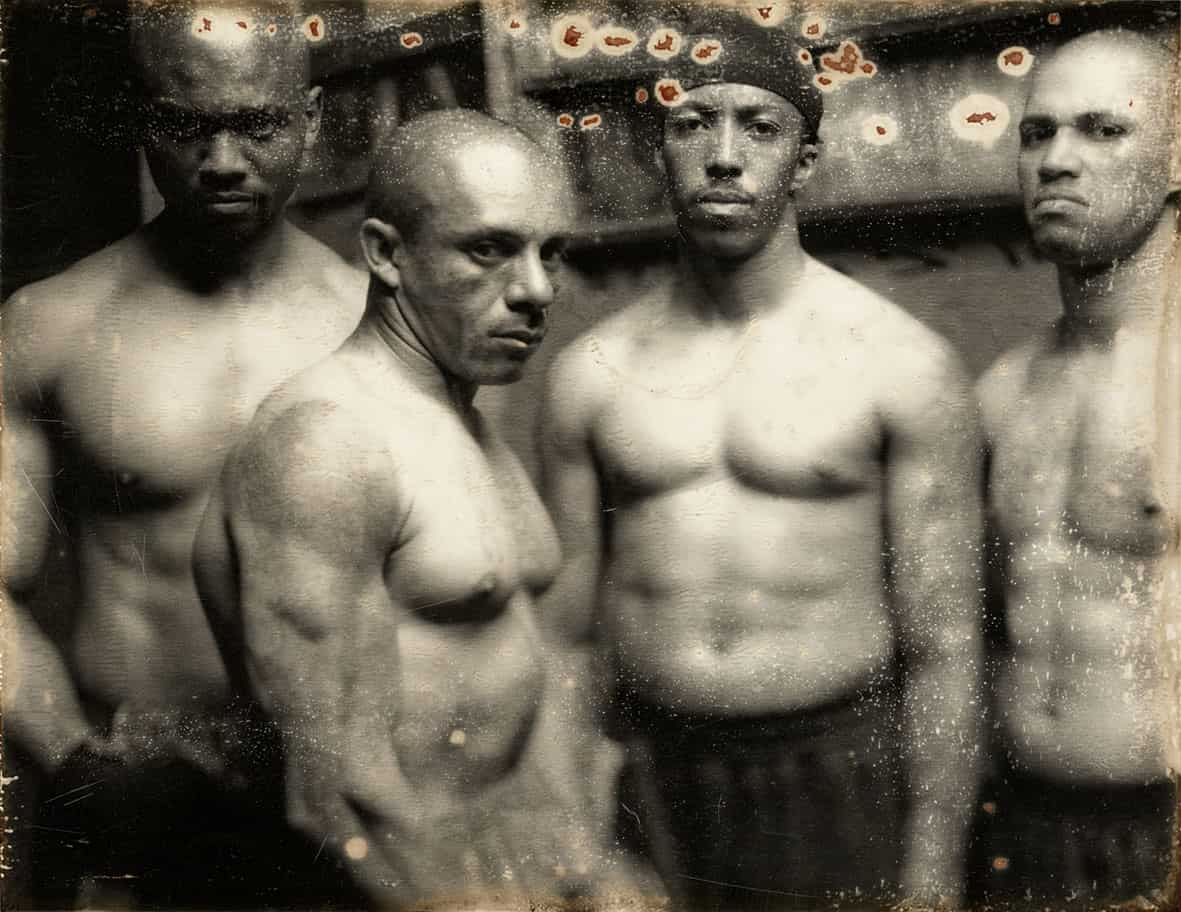
Tomasz Gudzowaty, “Proof”
Sepc
This year’s Vintage Photo Festival has been kicked off by Sepc, a famous Colombian artist whose work is dedicated to making grand murals incorporated into the city landscape. His works are not only impressive in size in technique, but also uniquely creative and interactive. Sepc paints his murals as negatives, and only when the viewer takes a picture of the artwork and looks at it through a mobile app, does it turn into a positive. Using inverted colours to create his work, at the same time involving the audience into finishing the artistic process, is something that separates the Colombian from other well-recognised graffiti artists. Since the artist incorporates the medium of photography both into the thought process behind his murals and into the viewing process, choosing the uncovering of his work to start off the Fifth Edition of The Vintage Photo Festival seems like a great choice. This year, Sepc’s work depicts Jadwiga Szopieraj, an artist who owned her own photographic studio and worked in Bydgoszcz up until the 1960s. The mural is based on a vintage picture of Szopieraj, taken around the 1920s to 1930s, and recovered by the Festival’s director – Katarzyna Gębarowska.
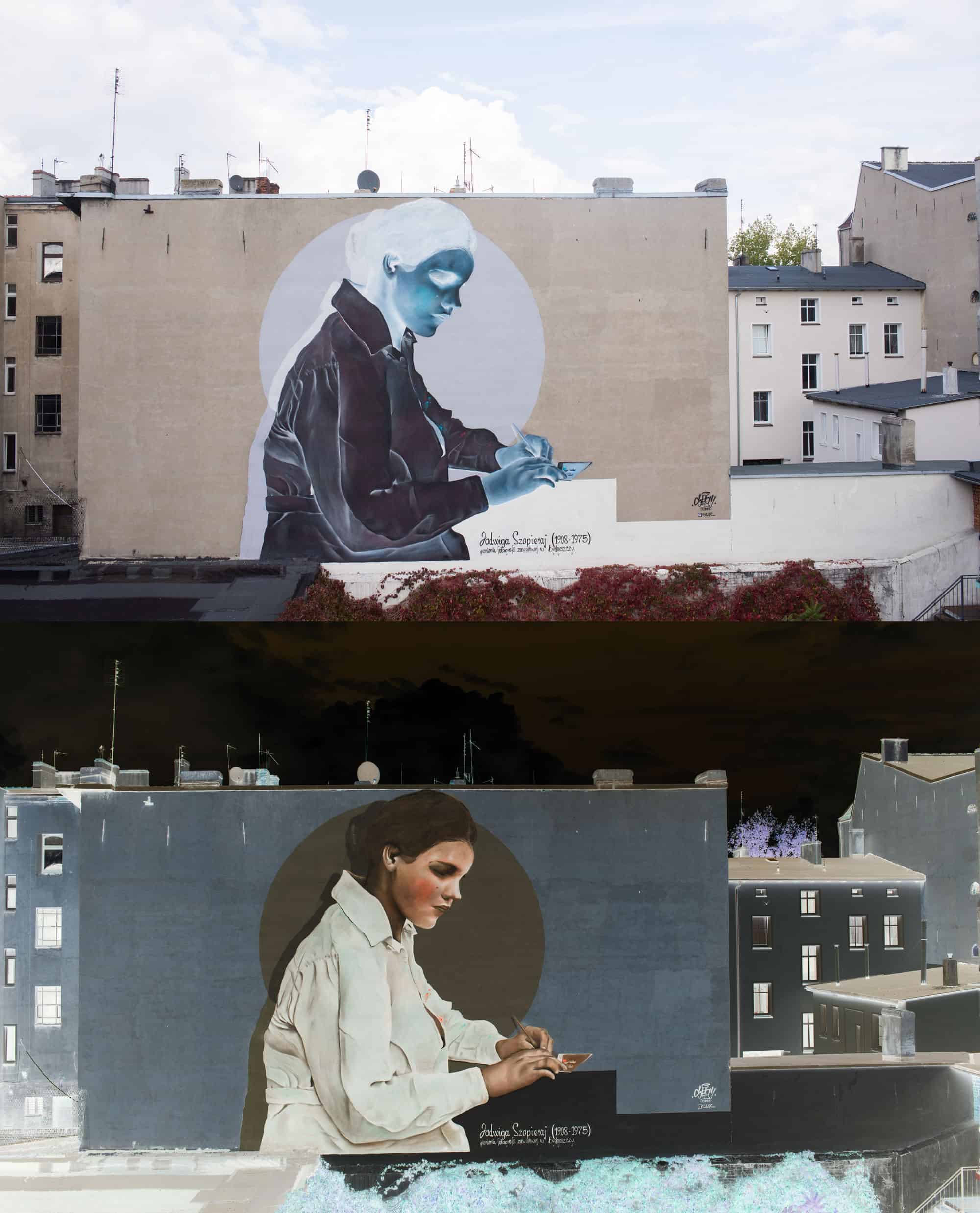
Mural Juan Sebastian, photo: Łukasz Antczak
Marcela Paniak
One of the most promising events of this year’s edition of The Vintage Photo Festival is undoubtedly the Family Album workshop hosted by Marcela Paniak, a young Polish photographer from Łódź. Focused around vernacular photography and the personal archives depicting people’s family history, Paniak invites the attendees to share their stories through the means of viewing and contextualising the art of photography, in day to day life often reduced to rare, special occasions like family gatherings. The workshop also aims to highlight the importance of documenting and understanding the past, especially when it comes to the issues involving identity and family heritage.
Written by Paulina Prońko
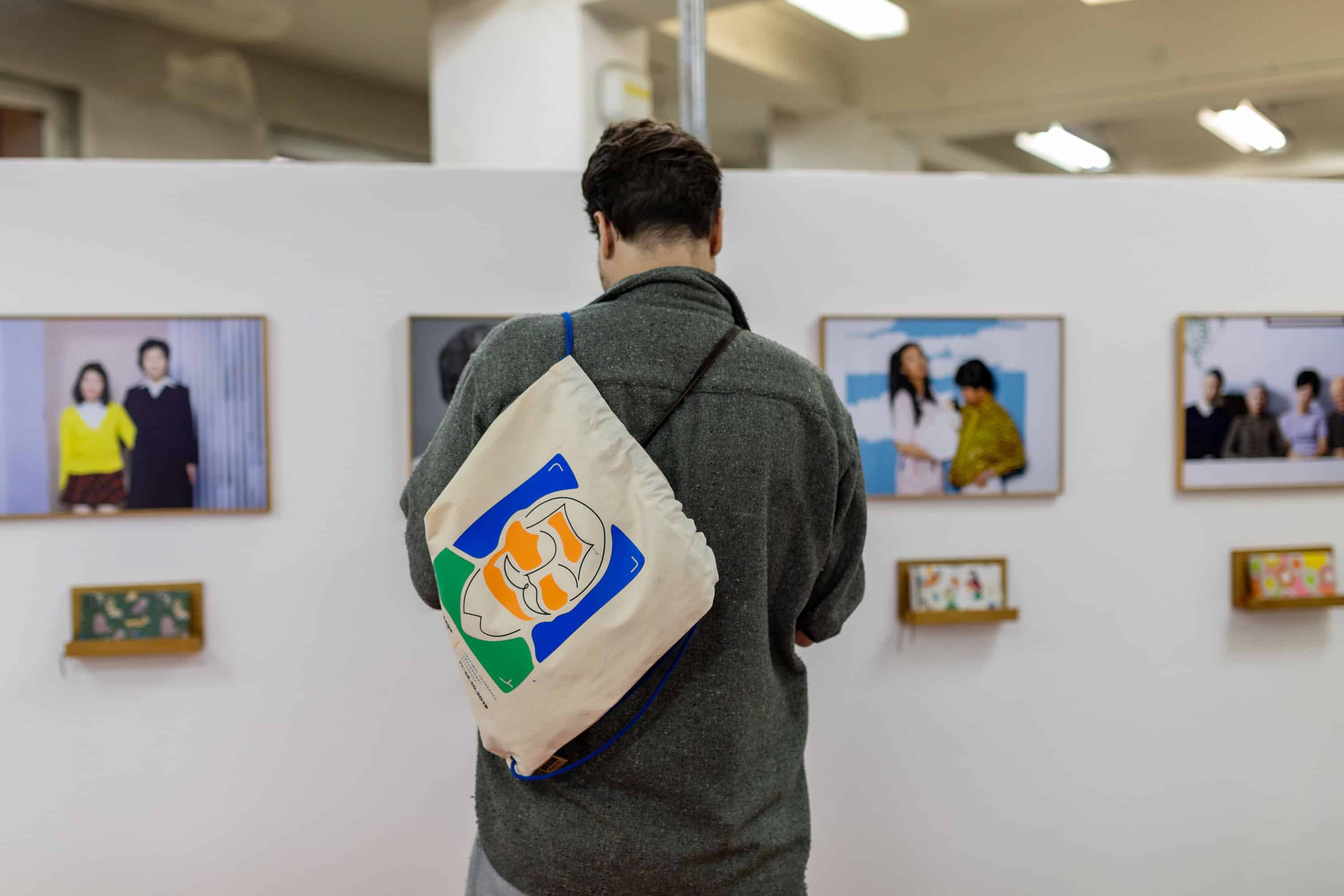
Vintage Photo Festival 2019, photo: Arkadiusz Wojtasiewicz
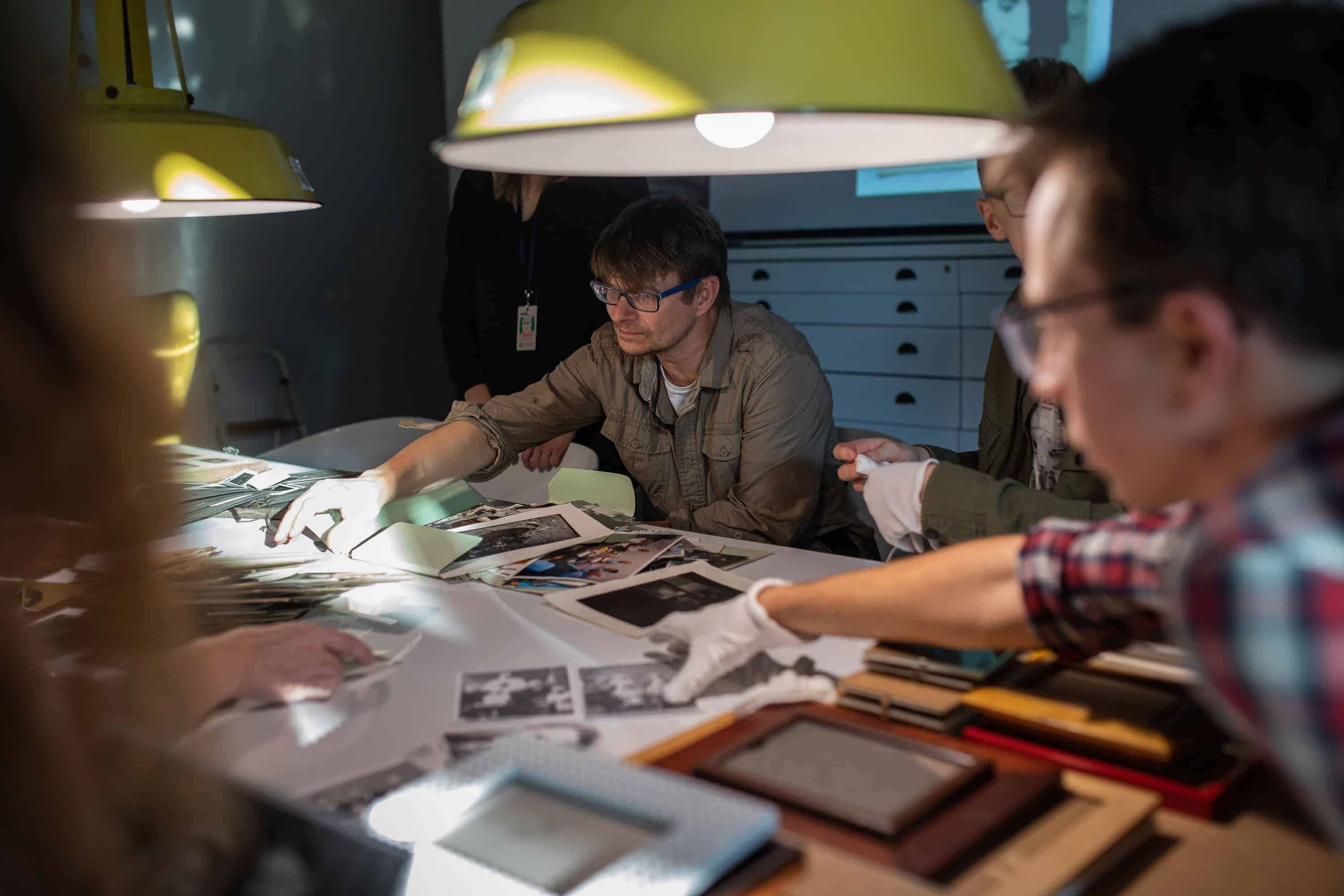
Karol Szymkowiak
This year’s Vintage Grand Prix, highlighting analogue photography and its techniques, has already awarded three winning projects. The 2nd prize went to Karol Szymkowiak and his C’è sempre un Tango project, a series dedicated to both memories of the past life and the man behind them – Szymkowiak’s grandfather, Władysław. Putting emphasis on the importance of cultivating memories and remembrance as a whole, especially in light of the inability of making new experiences by a man whose whole world has been reduced to the capacity of his apartment, the series takes a look at a life hidden in pictures collected over the years by Władysław. At the same time, Szymkowiak documents the fragility of life, past and present; expertly portraying the transitory nature of existence through the medium of photography.

Rie Yamada, Familie Werden, Vintage Photo Festival 2019




